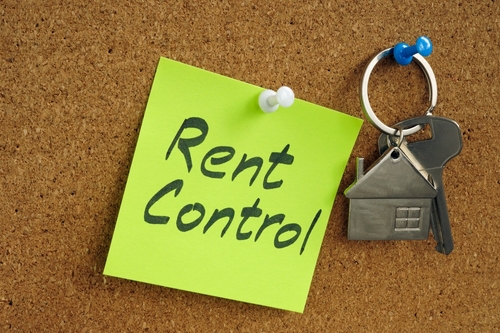
What To Know About Illinois Rent Control Laws
Illinois Rent Control Laws
In Illinois, recent legislative changes have introduced significant amendments to the state’s rent control laws to provide enhanced protection and stability for tenants statewide. The Rent Control Act, in conjunction with the Tenant Protection Act, introduces several provisions impacting both landlords and tenants. Individuals involved in the rental market must understand and follow these new regulations.
Illinois Rent Control Act
Illinois’ Rent Control Act establishes stringent restrictions on the frequency and magnitude of rent increases for dwelling units. The Rent Control Act states that landlords are permitted to raise the rent for a dwelling unit occupied by a tenant by a maximum of 15% once every 12 months, following a 90-day written notice. These measures are designed to prevent abrupt and excessive spikes in rental costs, thereby alleviating financial burdens on renters.
Furthermore, under the Rent Control Act, landlords are subject to limitations on rent increases even when temporarily withdrawing a dwelling unit from the rental market. This provision ensures that landlords cannot exploit vacancies to impose inflated rents on subsequent tenants, safeguarding against unjust practices in the rental sector.
Illinois Tenant Protection Act
Illinois’ Tenant Protection Act, complementary to the Rent Control Act, provides additional safeguards for tenants by curbing excessive rent increases. It restricts landlords from raising rents more than once annually, limiting increases to either the percentage change in the Consumer Price Index for the same period or 3%, whichever is lower. This provision correlates rent adjustments with inflation rates, ensuring tenants enjoy more predictable rental costs.
Moreover, the Tenant Protection Act introduces the Residential Rental Registry, obligating landlords to register all dwelling units with the Illinois Housing Development Authority annually. This registry aims to foster transparency and accountability within the rental market, furnishing essential information for tenants and regulatory authorities alike.
In addition to the establishment of the Residential Rental Registry, the Tenant Protection Act institutes the Right to Counsel Program, guaranteeing tenants access to legal representation in eviction proceedings. This initiative aims to address power imbalances between landlords and tenants, empowering renters to assert their rights effectively.
The Tenant Protection Act also establishes the Tenant Bill of Rights, encompassing regulations concerning exclusions, owner and agent identification, landlord access rights, harassment prevention, mandatory notices, landlord maintenance obligations, tenant recourse options, security deposits, foreclosure action notifications, and the prevention of retaliatory behavior by landlords.
Illinois’ recent implementation of rent control laws marks a major advancement in safeguarding renters’ rights and promoting housing stability. Renters need to stay vigilant and keep abreast of changes in rent control regulations to assert their rights and respond effectively to any violations. By being proactive and seeking legal support from experienced professionals as needed, renters can protect themselves from rent control infractions and maintain stable housing situations. Getting acquainted with these new laws and seeking legal advice empowers renters to navigate the rental market with confidence.
Speak To Our Illinois Tenant Rights Lawyer Today
If you’re a renter in Illinois and believe your rights have been infringed upon, it’s essential to seek guidance from our Illinois renter rights attorney at Dan Walker Law Office. Attorney Walker will assess your situation and ascertain if you may have grounds for legal action. For a consultation regarding renter rights violations, contact our Illinois tenant rights lawyer at (630) 920-8800 today to schedule an appointment.


